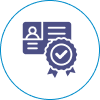1. What qualifications and skills should I look for when hiring an ecommerce developer?
Seek for developers that have experience with both front-end and back-end development, as well as e-commerce systems like Shopify, Magento, and WooCommerce. They should also be proficient in programming languages like PHP and JavaScript. Additionally crucial are effective problem-solving techniques, a history of completed e-commerce initiatives, and strong communication skills.
2. Should I hire freelance ecommerce developers or work with a development agency?
Depending on your own requirements and tastes. While development firms offer a team of professionals, devoted project management, and a wider choice of services, freelance developers could offer flexibility and cost-effectiveness. When choosing, keep things like the project's complexity, price, and schedule in mind.
3. What steps should I take to assess the expertise and experience of potential ecommerce developers?
Examine the developer's portfolio to determine the caliber and range of their prior e-commerce endeavors. Request references or customer reviews to learn more about their dependability, communication abilities, and capacity for meeting deadlines. Use coding tests or technical interviews to evaluate their expertise and problem-solving skills.
4. How can I ensure that the ecommerce developer understands my business requirements and goals?
Make sure the developer understands your required features and functionalities, branding requirements, target audience, and business objectives. To successfully communicate your vision, include wireframes, mockups, and comprehensive project specs. Throughout the development phase, regular cooperation and communication are crucial to ensuring alignment with your business objectives.
5. What measures should I take to ensure the security and confidentiality of my ecommerce project?
Sign non-disclosure agreements (NDAs) with the developer to safeguard confidential information and intellectual property. Security and confidentiality should be your top priorities. Make that the developer applies encryption, conforms to compliance standards like PCI-DSS for payment security, and follows best practices for data security.
6. What is the typical process for hiring ecommerce developers and launching an ecommerce project?
Depending on the project's complexity and the development methodology (e.g., waterfall, agile), the procedure may change. It usually entails pre-launch meetings and project scoping, then phases of design and development, testing, and quality control, deployment, and support and maintenance once the product is launched.
7. How can I ensure that the ecommerce developer provides ongoing support and maintenance after the project is launched?
Incorporate provisions in the project contract or agreement for post-launch maintenance and support. To make sure your needs are satisfied, talk about the developer's response times, service-level agreements (SLAs), and support offerings. Frequent feedback sessions and communication can assist guarantee the long-term success of your e-commerce project and help fix any concerns quickly.
8. What factors should I consider when negotiating the terms and pricing for hiring ecommerce developers?
Take into account elements including the project's scope, schedule, complexity, and the developer's degree of experience and skill. To prevent misunderstandings later on, talk about pricing models (such as hourly rates, fixed-price contracts, retainer agreements) and payment terms in front. Make that the contract covers modifications to the scope, deliverables, milestones, and payment schedules.
9. Can the ecommerce developer provide ongoing optimization and updates to improve the performance of my ecommerce website?
Yes, a lot of e-commerce developers provide continuous optimization services to improve your e-commerce website's functionality, usability, and conversion rates. To make sure that your website is still competitive and fulfills changing client expectations, this may involve SEO audits, usability testing, A/B testing, and continuous improvement activities.
10. What are the risks and challenges associated with hiring ecommerce developers, and how can I mitigate them?
Risks and difficulties could include poor communication, scope creep, overspending, and quality problems. Reduce these risks by carrying out in-depth study, defining precise goals, creating efficient channels of communication, and keeping constant supervision and cooperation throughout the project. Project deliverables, acceptance criteria, and milestones that are all clearly stated can also help to reduce risks and guarantee project success.
































